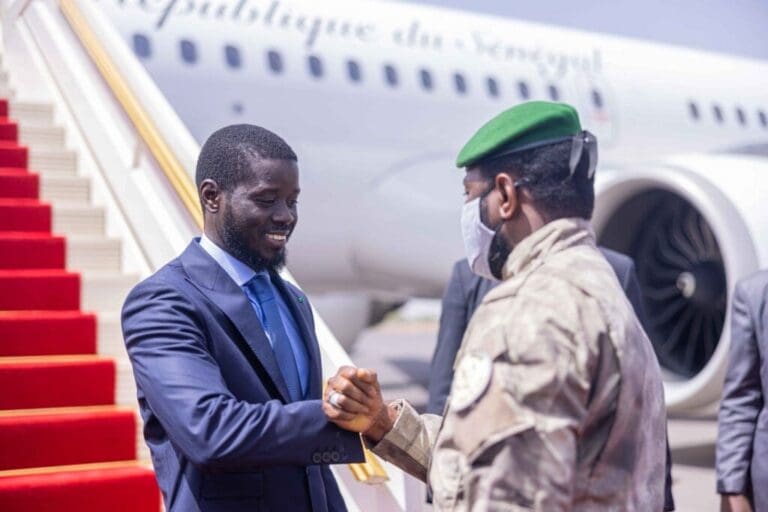In the face of growing insecurity and environmental challenges, Mali and Senegal are intensifying their collaboration, transcending political differences within Ecowas to focus on pragmatic bilateral relations.
By Abdou Cisse
Cooperation between Mali and Senegal is witnessing a new lease of life in early 2025, as evidenced by the official launch, on February 20, 2025, of joint patrols in the border region of Diboli, near Kayes.
This initiative is in response to the growing threat from the jihadist group JNIM characterised by several attacks and the assassination of Sufi religious figures close to Dakar and mobilises Military Zone No. 4 and GARSI on the Senegalese side.
The surveillance of the 700-kilometer common border is based in particular on the experience of the tripartite operations carried out in September 2024 with Mauritania.
On September 10 and 11, 2024, bipartite land and river patrols were conducted successively in the Diogountourou area in Mauritania, then in the Senegalese town of Aroundou. This security cooperation is an
extension of a technical military agreement signed in March 2021 between Mali and Senegal.
In addition to security, this cooperation also applies to other sectors, with initiatives such as the Dakar-Bamako trade corridor, essential for the regional economy. Mali remains Senegal’s main African trading partner, accounting for 50.5 percent of Senegalese exports to Africa, with an estimated volume of $1,404.5 billion CFA francs in 2022.
This is a partnership looking to be strengthened by the visit of Senegalese President Bassirou Diomaye Faye to Mali in May 2025, an opportunity to deepen bilateral trade.
On the diplomatic front, a series of high-level visits illustrate the deepening of bilateral relations.
On August 12, 2024, Senegalese Prime Minister Ousmane Sonko traveled to Bamako where he met President
Assimi Goita.
On October 17, 2024, Professor Abdoulaye Bathily, Special Envoy of President Bassirou Diomaye Faye, was received in turn by the Malian leader, after having met with his Burkinabe counterpart Ibrahim Traore on October 10.
Environmental protection is another major area of collaboration, notably discussed at COP16 in Cali, Colombia.
The environment ministers of the two countries, Mamadou Samake and Daouda Ngom also held talks about the pollution of the Faleme, leading to concrete measures such as a ban on dredging in the new Malian mining code and restrictions on gold mining on the Senegalese side.
This dynamic of cooperation has survived despite Mali’s official withdrawal from the West African regional grouping ECOWAS in January 2025, alongside Burkina Faso and Niger.
The three states had formed the Alliance of Sahel States (AES).
The Senegalese president has been designated by his peers in the region as a “facilitator” in the regional crisis.
Joint civil-military actions, including free medical consultations for border populations, illustrate the humanitarian dimension of this cooperation. These initiatives take on particular importance in a context marked by natural disasters, such as the accident of August 26 in Nabaji Civol, where five people disappeared after a traditional
boat hit the beam of a bridge under construction.
This multidimensional cooperation testifies to the depth of the historical and social ties between the two countries, as Professor Bathily emphasised during his visit on October 17, 2024, recalling that there is “not a single community in Senegal that is not linked to another in Mali.”
AC/fss/as/APA


